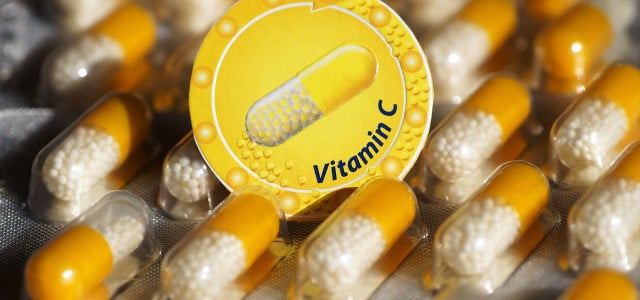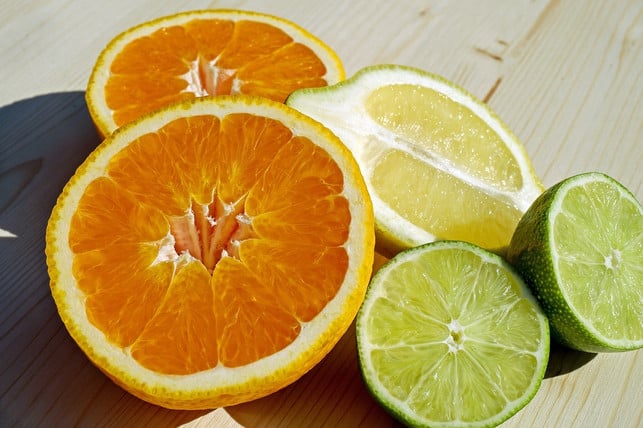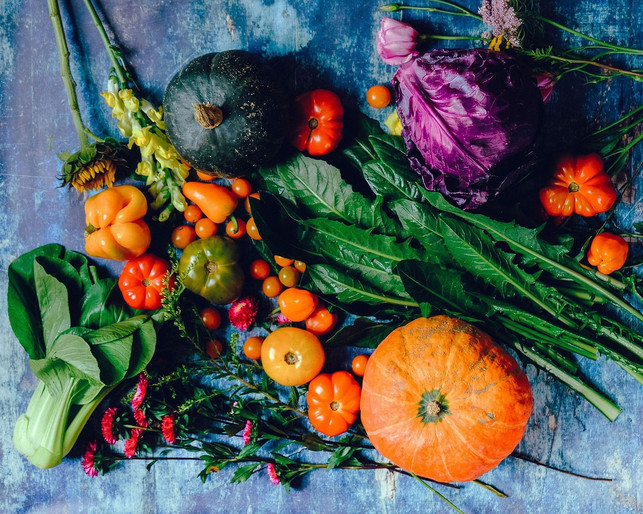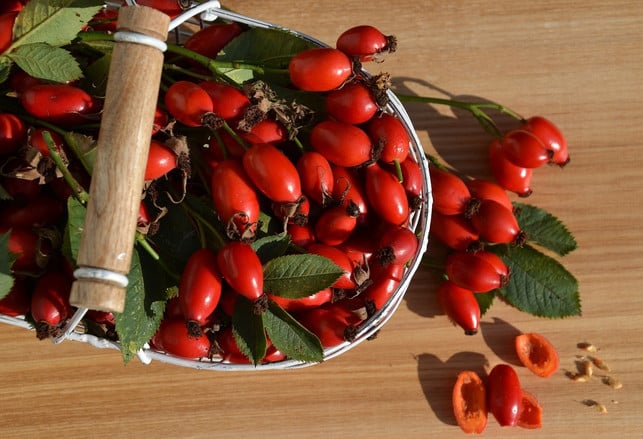
If you want to take vitamin C, there are a few things to consider. We will explain to you when you should take vitamin C and how you can avoid mistakes when taking it.
Vitamin C, also called ascorbic acid, is a water-soluble vitamin. It is also used in many foods as an antioxidant. Many people take vitamin C supplements – but when does it really make sense and how do you best absorb it?
Vitamin C: That’s what it’s good for

(Photo: CC0 / Pixabay / Couleur)
Vitamin C is involved in several processes in our body:
- It is an antioxidant and can bind free radicals and thus prevent oxidative stress
- it helps the body absorb iron better
- it inhibits the formation of nitrosamines
- it supports the body against colds and is good for the immune system
- it is a precursor of collagen, which, among other things, supports the normal function of blood vessels, bones, teeth and skin
- it can support the body during stress because it produces dopamine and adrenaline in the body
When should you take vitamin C?

(Photo: CC0 / Pixabay / ellaolsson)
The need for vitamin C is individual for each person, but according to the German Nutrition Society, the normal daily requirement for adults is around 100 mg. Therefore, it can actually be covered with a balanced diet. However, there are also exceptions where the need is higher:
- Pregnant women
- Breastfeeding
- Smokers
- People with disorders of the gastrointestinal tract
- Athletes
In these cases, it may make sense to take a dietary supplement if the requirement cannot be met through diet. Important: Before you take a preparation, you should always consult a doctor and determine any deficiency in advance using a blood test.
If you suspect you have a vitamin C deficiency, you may experience the following symptoms:
- fatigue
-
Muscle pain and weakness
- immunodeficiency
- Wound healing problems
- Joint pain
- Accumulation of water in the tissue
-
Inflammation and bleeding of the gums
Take vitamin C: How to avoid mistakes

(Photo: CC0 / Pixabay / ivabalk)
When taking a vitamin C supplement, here are some things to keep in mind:
- According to the German Nutrition Society, taking up to 1000 mg of vitamin C per day does not have any harmful consequences. At higher doses or an overdose, gastrointestinal problems may occur. If your doctor prescribes a high-dose preparation, it is best to take it throughout the day.
- In addition, you should not take vitamin C on an empty stomach, but rather take it with food.
- If you have kidney disease, you should be particularly careful with the dosage of vitamin C. Be sure to consult a doctor here too.
Recipes with lots of vitamin C

(Photo: CC0 / Pixabay / Innviertlerin)
Since our body cannot produce vitamin C itself, we have to get it through food. If you want to prevent a deficiency and take vitamin C supplements, you can eat the following vitamin C-rich foods:
- paprika
- black currants
- Parsley
- Kale
- broccoli
- fennel
- Citrus fruits
- Rose hips
- cress
- Sea buckthorn
Important: Vitamin C is particularly sensitive to heat. Therefore, if necessary, foods containing vitamin C should only be cooked gently in order to preserve as much of the vitamin as possible.
Here you can find inspiration for recipes with foods rich in vitamin C:
- Kale smoothie: A recipe for the green vitamin bomb
- Fennel salad with apple: recipe for the vitamin-rich salad
- Stuffed Peppers: A Vegetarian Recipe
- Parsley pesto: 3 delicious recipes
- Broccoli patties: recipe for healthy patties
- Ginger-lemon water: simple recipe and effects of the healthy drink
- Swedish rosehip soup: This is how you can prepare it
- Cress soup: creamy low-carb recipe
- Sea buckthorn juice: recipe for the vitamin bomb
Read more on Techzle\.com:
- Vitamin D deficiency: symptoms, causes and what helps
- Vitamins for the skin: These are the most important ones
- Prevent colds: How to stay healthy
** marked with ** or orange underlined Links to sources of supply are partly partner links: If you buy here, you are actively supporting Techzle\.com, because we then receive a small part of the sales proceeds. More info.